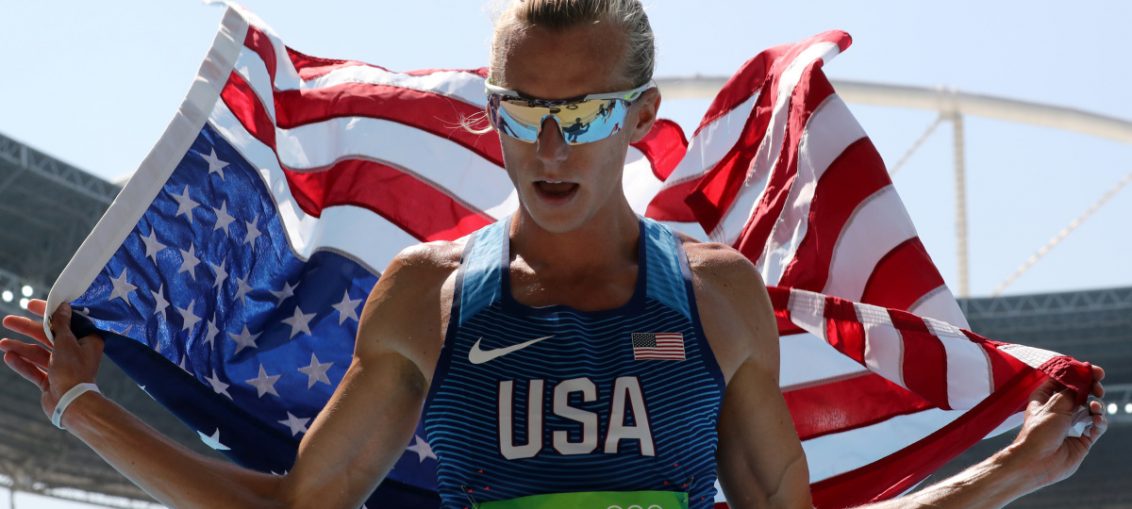
By Pat Graham
AP Sports Writer
RIO DE JANEIRO (AP) — Evan Jager knows steeplechase history about as well as anyone.
Like, how difficult the Kenyans are to beat and how the Americans haven’t captured an Olympic medal since 1984.
Hence, Jager’s raw emotion at the finish line when he updated that particular piece of history Wednesday.
The 27-year-old from Algonquin, Illinois, ran a strong tactical race to earn a silver medal in the 3,000-meter steeplechase, finishing one second behind Kenyan winner Conseslus Kipruto’s Olympic record time of 8 minutes, 3.28 seconds. Two-time Olympic champion Ezekiel Kemboi finished third, but was later disqualified for stepping outside the track, giving the bronze to fourth-place finisher Mahiedine Mekhissi of France.
“I think I had the perfect race today,” Jager said. “I was just enjoying every second of it.”
Before Jager, the Americans hadn’t won a medal in the event since Brian Diemer earned bronze at the 1984 Los Angeles Games. It’s been a historic couple of days for the Americans in the distance events.
On Tuesday night, Jenny Simpson became the first U.S. woman to win a medal in the Olympic 1,500 meters. On Monday, Emma Coburn won the first Olympic medal for the Americans in the women’s steeplechase, a bronze.
Jager certainly appreciates history.
“I do know how big of an achievement it is,” said Jager, the American record-holder in an event that includes jumping over barriers and into water. “I don’t know if it has hit me yet. The happiness has definitely hit me, but outside of that I haven’t really thought about anything.”
Jager, with his distinctive blond hair tied back, was ready for anything in this race, including Kipruto settling in behind him. Kipruto made his move and surged into the lead about the time the bell sounded. He began to celebrate shortly after leaping over the last barrier as he extended his country’s streak to nine straight Olympic titles in the event.
No doubt, Jager knew that piece of trivia. And of course this: His silver was the highest an American has placed since Horace Ashenfelter won the race in 1952.
Hillary Bor wound up eighth for the Americans by running a personal-best time. Bor is a sergeant in the U.S. Army and one of four runners of Kenyan descent who’ve taken a unique path to Rio by enlisting in the military, earning American citizenship and training with the Army’s World Class Athlete Program. Bor’s brother is currently serving in Afghanistan.
“I tried to hang in with them but I’m not ready for that kind of pace,” Bor said. “I feel good with my effort and thinking of how I thought I would never be here but to come here and finish in the top-10. That is such an accomplishment. It’s a good experience. I’ve never been in this kind of atmosphere.”
One thing’s for sure: Jager’s got the attention of the Kenyans.
“Last year, when I was running with him in a Paris Diamond League (meet), he was stronger and I told the guys in Kenya, ‘We must work extra hard to beat this guy,’” recounted Kemboi, who thinks Jager might be a world or perhaps Olympic champion one day. “He’s a threat.”
Asked if in some way a silver felt like a lot like a gold, given the dearth of history in the steeplechase, Jager simply responded, “No.”
“It feels like silver, but I’m totally OK with silver,” Jager added. “I think breaking up the Kenyans in the steeplechase, and just beating Kenyans in championship steeplechases, it’s a very hard achievement.”